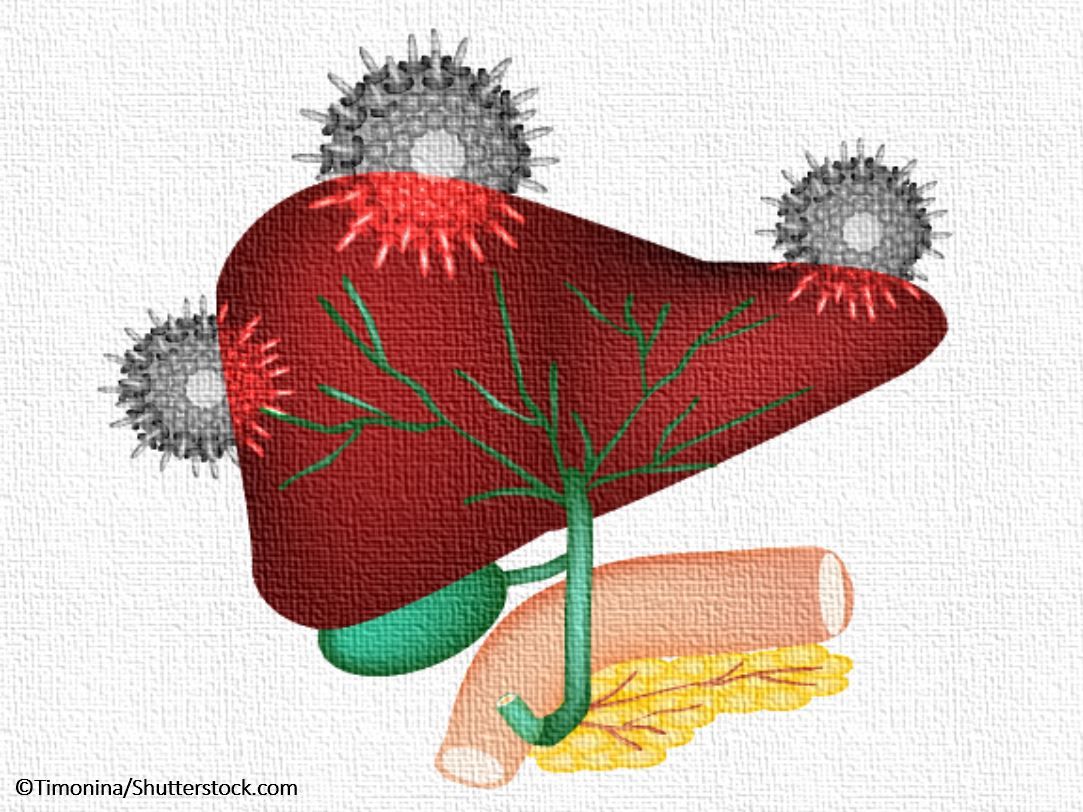- Clinical Technology
- Adult Immunization
- Hepatology
- Pediatric Immunization
- Screening
- Psychiatry
- Allergy
- Women's Health
- Cardiology
- Pediatrics
- Dermatology
- Endocrinology
- Pain Management
- Gastroenterology
- Infectious Disease
- Obesity Medicine
- Rheumatology
- Nephrology
- Neurology
- Pulmonology
Hep C Quiz: 5 Questions on the News
ICYMI: HCV elimination success, SVR in blacks, transplant delisting, clearance after acute infection-catch up with a quiz.
©Timonina/Shutterstock.com

How closely have you been following recent hepatitis C virus (HCV) news? Take this quick 5-question quiz to find out what you may (or may not) be missing.
Question 1.
In a recent report, investigators described 2-year outcomes for patients with decompensated cirrhosis treated with direct-acting antiviral (DAA) therapy while on the waiting list for liver transplantation.
Please click here for answer and next question.
Answer: C. One-third. Initial results of the ELITA study, published in 2016, showed that DAA therapy allowed 1 in 4 HCV-infected liver transplant candidates to be delisted due to improvement in liver function. In the updated report including 2-year outcomes, the percentage of delisted patients was higher than in the original report (approximately 1 in 3) due to additional patients being delisted long after starting treatment. Risk of liver-related complications after delisting was very low, according to authors of the study, which included a total of 142 patients in Europe treated between February 2014 and June 2015. We previously reported on transplant details and other compelling studies.
Question 2.
In a recent pooled analysis of clinical trials, investigators looked at the efficacy of elbasvir/grazoprevir in black adults with HCV infection.
Please click here for answer and next question.
Answer: D. Similar overall and in both HCV genotypes 1 and 4. This pooled analysis, reported earlier this year, found that treatment with elbasvir/grazoprevir was highly effective, safe, and well tolerated in black adults with HCV infection. The rate of SVR at 12 weeks was similar for black and non-black participants, both overall and specifically for the subgroups of patients with HCV genotypes 1 or 4, researches said in the study, which was published earlier this year in the American Journal of Gastroenterology.
Question 3.
Please click here for answer and next question.
Answer: A. Georgia. Georgia, Iceland, Brazil, and Egypt are among the 9 countries on track to eliminate HCV by 2030, as reported last year at the World Hepatitis Summit. Some encouraging results have been reported from hepatitis elimination programs, including the program in Georgia, the world’s first. Screening began in 2015, and by the end of April 2017, nearly 43 989 individuals had been diagnosed with HCV infection, 33 673 had initiated DAA treatment, and 24 273 individuals were cured, as shown by achievement of SVR. More information is availalbe on the success of elimination programs in Georgia and Iceland, in our coverageof the most recent International Liver Congress.
Question 4.
Previous cohort studies have suggested that 10%-15% of HCV-infected persons will spontaneously clear their infection after acute infection.
Please click here for answer and next question.
Answer: C. Higher than in cohort studies. The recent study in the International Journal of Infectious Diseases, describes use of a mathematical model to estimate HCV clearance rate in 4 population based data sets, including 2 from the US and 2 from Egypt. The proportion of infected persons who would spontaneously clear their infection after acute infection was estimated to be 29.6% and 39.9% in the US data sets, and 39.9% and 33.5% in the Egypt data sets. Investigators say the mathematical modeling approach is likely more precise, as it overcomes the “unavoidable limitations” of cohort studies, which have included small sample sizes, short follow-up durations, and retrospective testing of stored HCV RNA samples. The bottom line, according to investigators, is we may be underestimating the capacity of the immune system to spontaneously clear HCV infection.
Question 5.
In a recent University of Pennsylvania study, HCV-infected kidneys were transplanted into uninfected recipients.
Answer: B. 100%; similar. In the Annals of Internal Medicine, investigators reported outcomes for 20 HCV-negative transplant candidates who underwent received kidneys infected with HCV genotype 1 followed by DAA therapy (elbasvir/grazoprevir) starting on day 3 after transplant. The primary outcome, HCV cure, was 100% for this cohort. Compared to matched recipients who received HCV negative kidneys, eGFRs were similar in both groups at 6 months and 12 months. Although the trial is limited by its small size, the patients achieved HCV cure and “excellent” renal function suggesting HCV-infected kidney donors may be a valuable resource.
